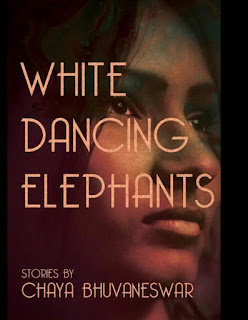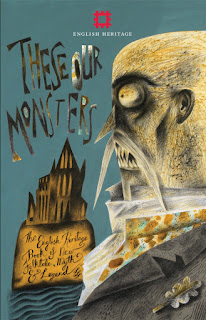Chaya Bhuvaneswar is a practicing physician on the front lines in New York City, a Rhodes Scholar, and a highly acclaimed short story author
"Newberry" - A Short Story by Chaya Bhuvaneswar - from her debut collection, White Dancing Elephants - 2018
In the nearly eleven years in which i have maintained The Reading Life i have never seen as much attention given to a debut Short story collection as that given to White Dancing Elephants by Chaya Bhuvaneswar. So far I have posted on eight of her marvelous very creative stories, all deal with the interaction of persons of Indian background with western countries.
I have recently reread The Anatomy of Criticism by Northrup Frye. He talks extensively and very learnedly about the various ways in which myths are used to structure literary works. In today's story and others of her work I read prior to today we can see Bhuvaneswar very profoundly use ancient Indian myths not only as part of the rhetorical structure of her stories but she shows us how people retreat into deeply rooted ancient archetypal myths to help with the otherwise unfathomable aspects of their lives. She overlays the ancient myths with modern reality.
As "Newberry" opens Vinita is taking a smoke break from her job at a Massachusetts beauty salon. She has worked there for years, hating the customers. She knows most of the patrons look down on her. She and her boyfriend are from India. Her boss Leo launders money for organised crime. Vinita and her boyfriend are in the final stages of embezzling from Leo, enough to escape.
We see how the rationalizes the theft, her plans for escape. Her life is a mess.
There is much more to this story. Lovers of the short story will want to read the entire collection.
https://chayabhuvaneswar.com/
Chaya Bhuvaneswar studied Indian poetic traditions with the support of an NEH Younger Scholars grant and as a Rhodes Scholar at Oxford, concentrating in Sanskrit. She has received a Time-Life Writing Award as well as a Yale Elmore Willetts Prize for Fiction. Her short stories have been anthologized in Her Mother’s Ashes 2,and featured on the Other Storiespodcast. An Affiliated Fellow in Writing at the Boston University Center for the Study of Asia, she lives in Newton, Massachusetts.She is a practicing physician.
Mel u





























